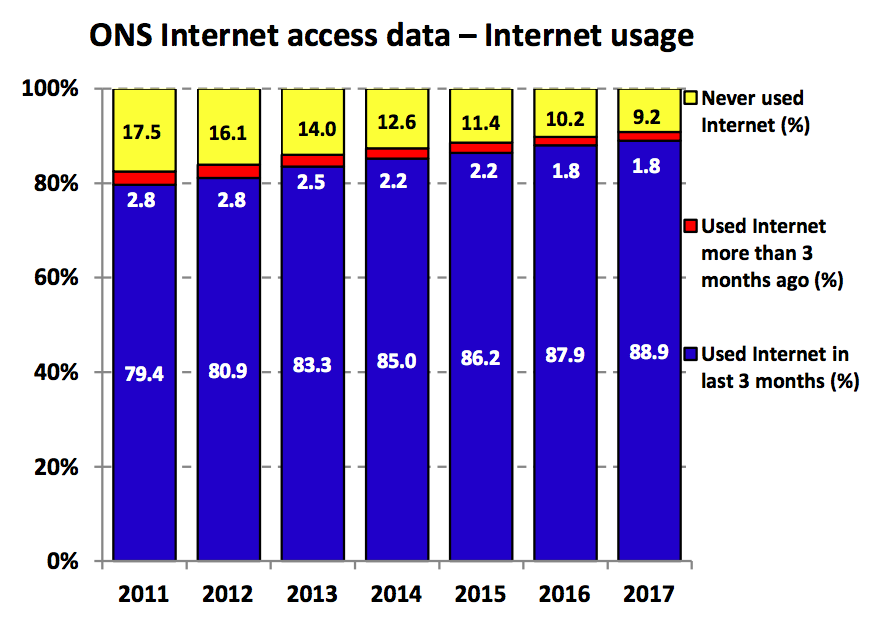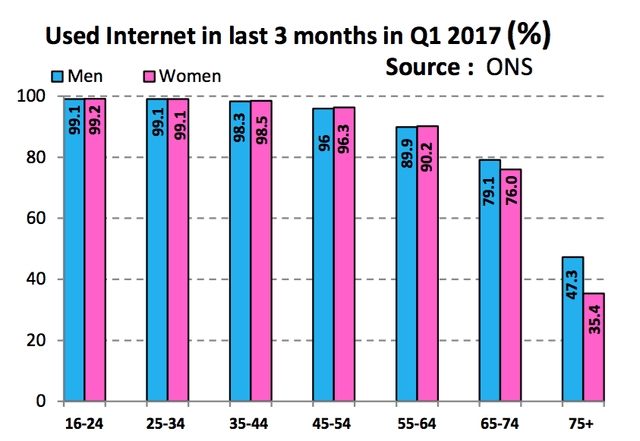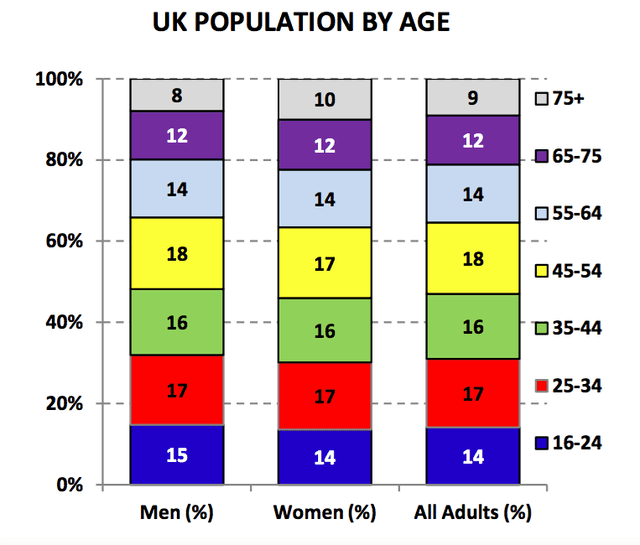Spot the elementary mistake in this advertisement
Andrew Papworth gives a spot-on analysis of an ad that seriously falls short by ignoring a key demographic.
- Written by
- Andrew Papworth
- Added
- June 07, 2017

There is something seriously wrong with the ad shown here from the World Food Programme. Here is a clue: the latest data from the ONS – summarised in the chart below – shows that by the first quarter of 2017 almost nine out of 10 adults (89 per cent) had used the internet in the previous three months and fewer than one in 10 (nine per cent) had never used it – and that usage was continuing to improve.
Given this trend, it is very easy to understand why a charity such as the World Food Programme might say ‘whoopee!’ And, consequently, believe that this widespread access to the internet allows them to cut costs by not having to pay staff to open envelopes, pay cheques into the bank, process direct debits, contract a third party to take phone donations, etc. It can look like a win for everyone.

But it’s just not that simple. First of all the criterion of having used the internet in the ‘last three months’ is a pretty low hurdle and many of the nine out of 10 may well be very occasional and very limited users who lack confidence and expertise when it comes to online transactions.
More seriously still, as the chart on the right demonstrates, the percentage of adults who claim to have used the internet in the last three months starts to fall among the over 65 year-olds – particularly among women. Among those aged 75 and older more than half the men and almost two-thirds of the women claim not to have used the internet at all in the last three months. These will include many relatively affluent widows who own their own homes and have considerable pension income. They ought to be prime targets for most charities as both potential donors and possible sources of legacies.
Why does it matter if these off-line older people are ignored? For a start, as the chart on the right shows, the over 65s are not an insignificant part of the UK population: they account for 20 per cent of men and 22 per cent of women.
Secondly, with ever increasing longevity and either a static or a declining birth-rate, the over 65s are projected to account for an ever increasing share of the population. Between 2005 and 2015 the adult UK population rose by eight per cent, those aged up to 15 rose by five per cent but those aged 65 or older rose by 20 per cent.
This brings us back to the World Food Programme ad shown at the top. It totally ignores anybody who is not tech savvy. What on earth will they make of the hashtag headline? They possibly won’t have a clue about the meaning of Twitter and Facebook logos. The only means of responding to the ad are digital so anybody without online access or reluctant to use it will be unable to reply however much they might wish to. The World Food Programme are not alone in relying too much on online methods of response but this is a particularly egregious example of getting the ask wrong.
Thirdly, pensioners have been relatively well-protected against the climate of economic austerity up to now and have largely maintained their disposable incomes, whilst the trends towards later marriage, delaying the age of giving birth, extending education, delaying the age at which the first home can be bought, the accumulation of debt through further education, etc have tended to postpone the onset of the empty nest syndrome.
As a result of these trends many people well into their 50s or later find that they are still part funding their offspring as the ‘bank of mum and dad’ and can therefore be limited in their ability or willingness to respond to charity appeals on the basis that ‘family comes first’. These trends make it foolish to put obstacles in the way of older people in the way that the World Food Programme ad does.
Although the oldies may also feel obligated to help out children and grandchildren financially, they are still more likely than others to have a discretionary income.




















